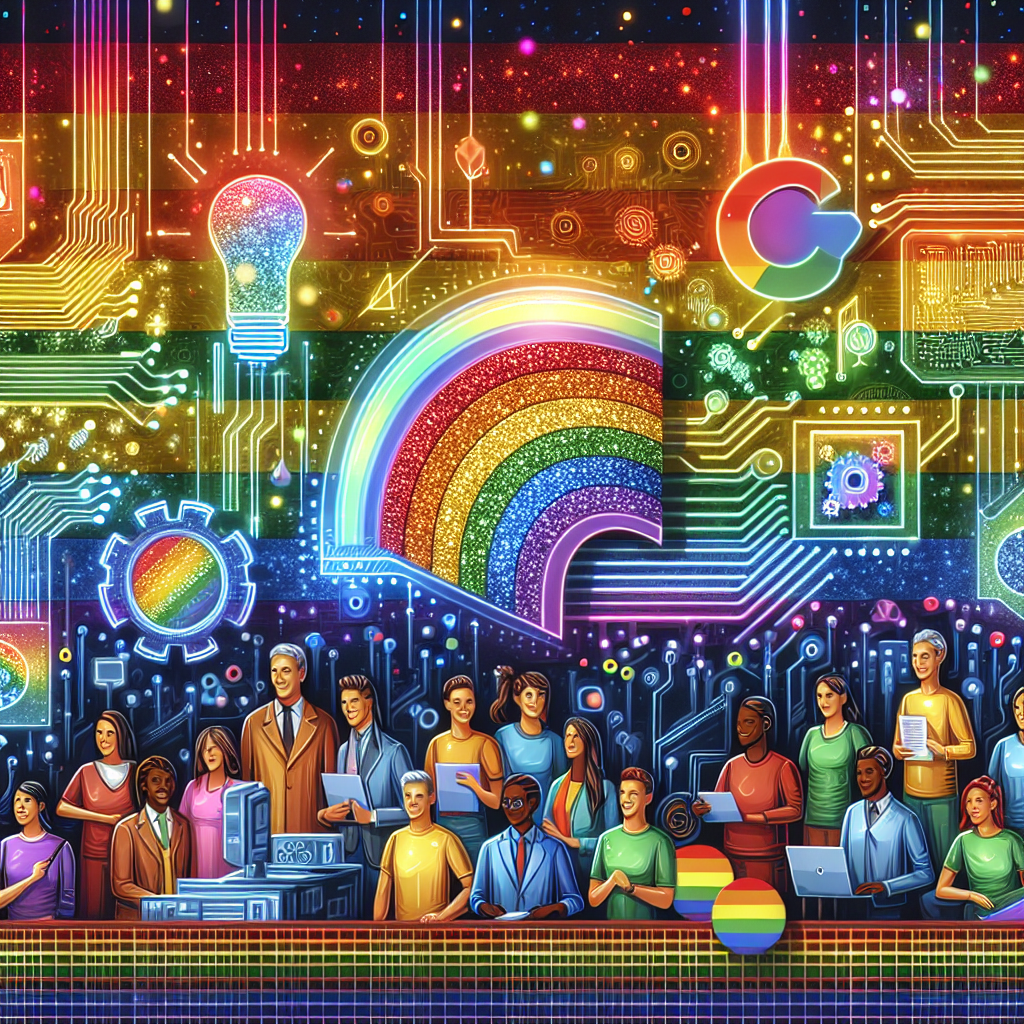The Future of Giving: AI-driven Strategies for Supporting LGBTQ+ Communities
In recent years, there has been a growing recognition of the importance of supporting LGBTQ+ communities and the unique challenges they face. From discrimination and violence to lack of access to healthcare and social services, many LGBTQ+ individuals and communities face significant barriers to living happy and healthy lives.
As we look towards the future of giving, it is crucial that we explore new and innovative ways to support LGBTQ+ communities. One promising avenue for doing so is through the use of artificial intelligence (AI) technology. AI has the potential to revolutionize the way we approach philanthropy and social impact, allowing us to better target resources, measure impact, and support marginalized communities in a more effective and equitable manner.
AI-driven strategies for supporting LGBTQ+ communities can take many forms, from predictive analytics to personalized messaging and targeted interventions. By harnessing the power of AI, we can better understand the needs and experiences of LGBTQ+ individuals, identify gaps in services and resources, and develop more tailored and effective solutions to address these challenges.
One of the key advantages of AI-driven strategies is their ability to process and analyze vast amounts of data in real-time, allowing organizations to make more informed decisions and allocate resources more efficiently. By leveraging AI tools such as machine learning algorithms and natural language processing, we can gain deeper insights into the needs and experiences of LGBTQ+ communities, identify trends and patterns, and develop more effective strategies for supporting them.
For example, AI can help organizations identify and reach out to LGBTQ+ individuals who may be at higher risk of experiencing discrimination or violence, connect them with support services and resources, and provide personalized guidance and assistance. AI can also help organizations track the impact of their interventions, measure outcomes, and continuously improve their programs and services based on real-time data and feedback.
AI-driven strategies can also help organizations better engage with LGBTQ+ communities and amplify their voices and experiences. By leveraging AI tools such as sentiment analysis and social media monitoring, organizations can better understand the needs and priorities of LGBTQ+ individuals, identify emerging issues and trends, and tailor their messaging and advocacy efforts to resonate with diverse audiences.
In addition, AI can help organizations build more inclusive and diverse communities by promoting diversity and representation in their programs and services. By leveraging AI tools such as bias detection algorithms and diversity metrics, organizations can identify and address biases and inequalities in their data and decision-making processes, and ensure that their programs and services are accessible and responsive to the needs of all LGBTQ+ individuals.
Overall, the future of giving is bright with AI-driven strategies for supporting LGBTQ+ communities. By harnessing the power of AI technology, organizations can better understand the needs and experiences of LGBTQ+ individuals, develop more targeted and effective solutions, and build more inclusive and diverse communities that empower and support all members.
FAQs
Q: How can AI technology help support LGBTQ+ communities?
A: AI technology can help support LGBTQ+ communities in a variety of ways, including by identifying and reaching out to individuals at higher risk of discrimination or violence, connecting them with support services and resources, tracking the impact of interventions, and amplifying their voices and experiences through personalized messaging and advocacy efforts.
Q: What are some examples of AI-driven strategies for supporting LGBTQ+ communities?
A: Some examples of AI-driven strategies for supporting LGBTQ+ communities include predictive analytics to identify individuals at higher risk, personalized messaging to connect them with support services, sentiment analysis to better understand their needs and priorities, and bias detection algorithms to ensure that programs and services are inclusive and responsive to all members.
Q: How can organizations leverage AI technology to build more inclusive and diverse communities?
A: Organizations can leverage AI technology to build more inclusive and diverse communities by promoting diversity and representation in their programs and services, addressing biases and inequalities in their data and decision-making processes, and ensuring that their interventions are accessible and responsive to the needs of all LGBTQ+ individuals.

